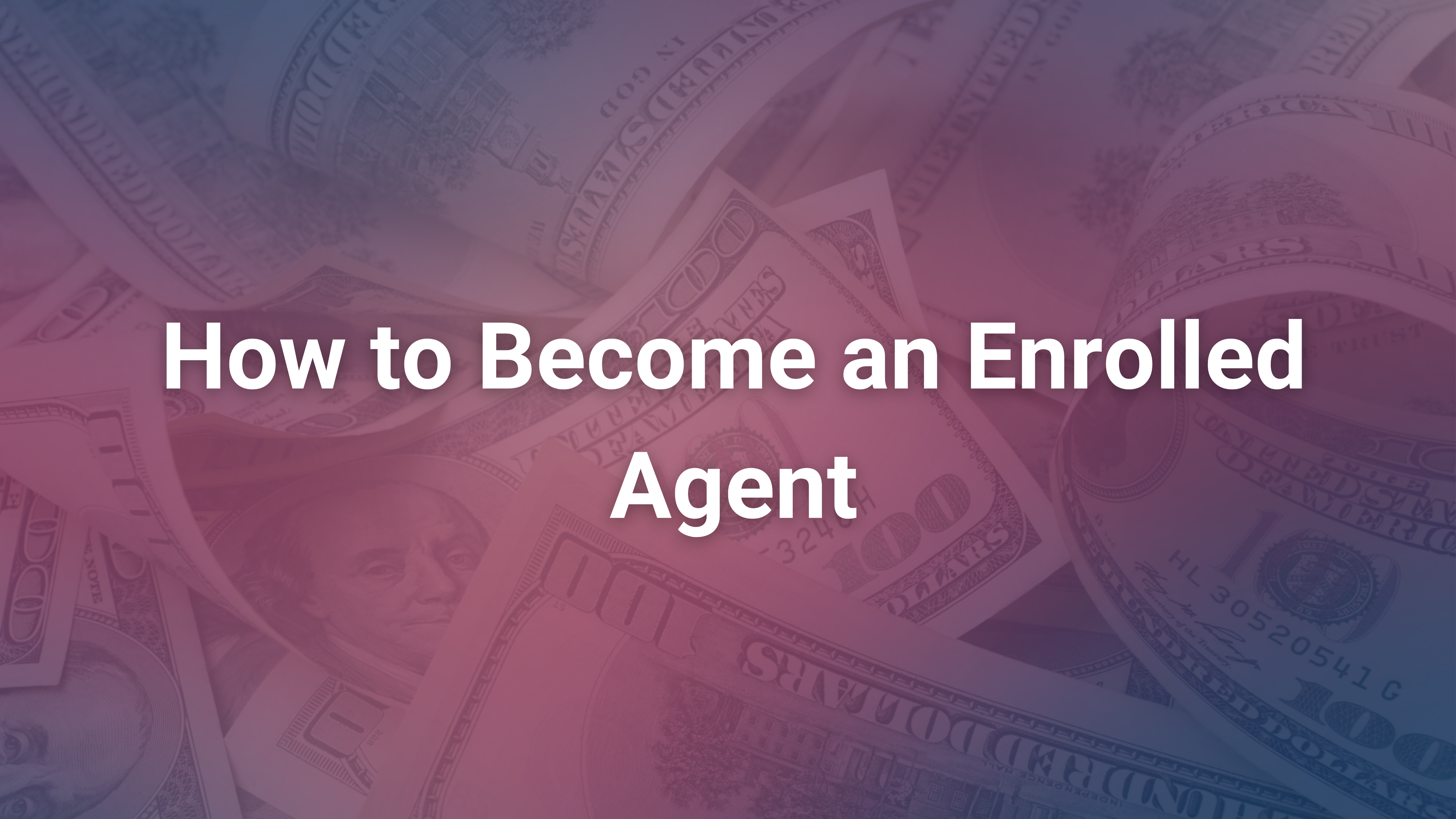An Enrolled Agent (EA) is a federally-authorized tax practitioner who represents taxpayers before the Internal Revenue Service (IRS). EAs may advise, represent, and prepare tax returns for individuals, partnerships, corporations, estates, trusts, and any other entity with tax-reporting requirements. Since the EA license is federal, EAs may practice in any state.
Becoming an Enrolled Agent is a great career move for those already in the accounting and tax fields, or for those that are looking to break-in.
Why become an EA? What are the benefits?
In my opinion, becoming an EA is a great way to quickly break-in the field of finance and taxation without having a college degree. I also think a huge benefit to becoming an EA is that it can be quite a flexible job, with seasonal hours and remote work options. Here are some additional benefits:
- Representation Rights: EAs can represent clients before the IRS on any tax matter
- Expertise: EAs are recognized as tax experts, enhancing credibility and client trust, which is great for starting your own tax practice
- Career Opportunities: EAs often have better, more flexible job opportunities including remote work
- No College Required: Unlike other careers in finance, you do not need a college degree to become an EA
Here’s what it takes to become an Enrolled Agent:
1. Obtain a Preparer Tax Identification Number (PTIN)
Before you can take the EA exam, you need a PTIN. If you don’t already have one, you can obtain it online from the IRS. This is a necessary identification number for tax preparers. Don’t sweat it, this part isn’t hard.
2. Prepare for the Special Enrollment Examination (SEE)
This is going to be the most challenging part of becoming an EA. You must pass the SEE exam in order to become an EA.
The SEE consists of three parts:
- Part 1: Individuals
- Part 2 : Businesses
- Part 3: Representation, Practices, and Procedures
Each part of the SEE is a separate exam, and you must pass all three to become an EA. The exam covers a wide range of topics in-depth, so thorough preparation is essential. However, you may rest easier knowing that all the questions are multiple choice.
Luckily, you can retake sections that you failed without having to retake the entire test, and pass the test, as long as all three parts are completed and passed within two years.
How to study for the SEE:
There are numerous study guides and courses available both online and offline. Many candidates choose to enroll in review courses specifically designed for the SEE.
Whichever specific study program you use, I highly recommend taking practice exams so you get a sense of the test format and types of questions to expect.
3. Schedule and Take the SEE
The SEE is administered by Prometric, a private testing company.
You can schedule your exam online to be taken at a Prometric testing center. The exams are available from May 1 to February 28 each year.
There is a fee for each part of the exam.
Learn more about the specific testing protocols here.
4. Pass a Background Check
After you pass all three parts of the SEE, the IRS will conduct a background check.
This check makes sure you haven’t engaged in any conduct that would be disqualifying from practicing before the IRS.
What behavior is disqualifying according to the IRS?
Essentially, a criminal record with offenses under federal tax law and offenses having to do with dishonesty are most likely disqualifying.
5. Apply for Enrollment
So, after all of that you finally passed the exams and the background check! Now you need to apply for enrollment by sending in Form 23 “Application for Enrollment to Practice Before the Internal Revenue Service” and pay the fee.
The form can be found on the IRS website, and the fee is $140 at the time of writing.
6. Maintain Your EA Status
Congratulations! You’re an EA! Now, you must complete 72 hours of continuing education every three years to maintain your EA status. And don’t wait to do it all at the last minute, because at least 16 hours must be completed each year, including 2 hours on ethics.
But wait! There’s a little-known second way to become an Enrolled Agent…
If you’ve worked for the IRS, you may be able to apply to become an Enrolled Agent without having to take the SEE. Generally, you need at least five years in “one of these taxpayer-facing field positions: appeals officer, special agent, revenue officer, revenue agent, tax specialist, tax law specialist, or settlement officer. Three of the five qualifying years must have occurred within the last five years prior to separation from the IRS.”
Becoming an Enrolled Agent is a somewhat rigorous process, but it comes with significant benefits. EAs are respected tax professionals with job flexibility and have the privilege of representing taxpayers before the IRS. If you are considering a career in tax or accounting or you simply just want to enhance your current credentials, pursuing the EA designation is a worthy endeavor.
